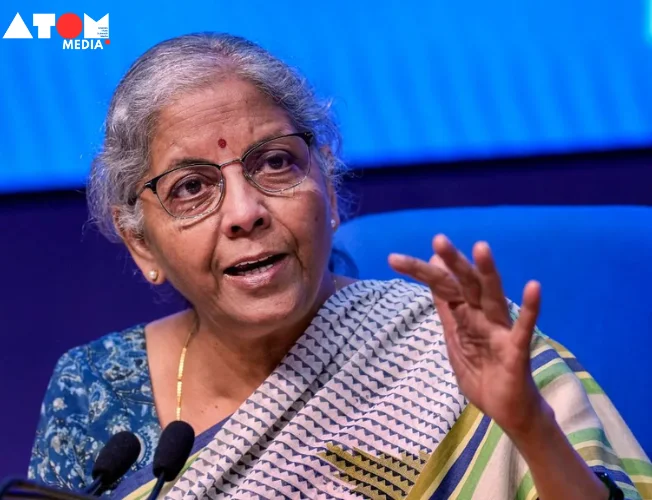In a recent event titled ‘Viksit Bharat 2047 – Vision for Indian Financial Markets’ organized by the Bombay Stock Exchange (BSE) in Mumbai, Union Finance Minister Nirmala Sitharaman faced a challenging question from a stock market broker regarding the taxation burden imposed by the government on brokers. The interaction, which garnered significant attention online, shed light on the concerns of brokers regarding the taxation policies impacting their profitability.
Key Points from the Event
During her keynote address at the event, Sitharaman commended the Bombay Stock Exchange for its pivotal role in shaping the Indian financial markets, especially amidst global uncertainties. The event provided a platform for stakeholders, including stock brokers from Mumbai, to engage with the Finance Minister directly.
Challenging Question on Taxation Policies
Amidst the session, a stock market broker raised a pertinent query regarding the multitude of taxes imposed by the government on brokers. He highlighted taxes such as Goods and Services Tax (GST), Central Goods and Services Tax (CGST), Securities Transaction Tax (STT), Integrated Goods and Services Tax (IGST), Stamp Duty, and Long-term Capital Gains (LTCG) tax, lamenting that the government’s tax revenue exceeds the earnings of brokers themselves.
The broker articulated the challenges faced by brokers in navigating a regulatory environment where a significant portion of their profits is eroded by taxation. He emphasized the disparity between the risks undertaken by brokers and the government’s share of profits, characterizing the government as a “sleeping partner” benefiting from brokers’ efforts.
Concerns About Property Transactions
In addition to taxation issues, the broker also expressed concerns about the challenges faced by common citizens in property transactions, particularly in cities like Mumbai. He highlighted the impact of stringent taxation policies on property purchases, citing examples of stamp duty and GST, which collectively amount to approximately 11% of the property value.
Finance Minister’s Response
In response to the concerns raised, Sitharaman emphasized the importance of reducing systemic risks and maintaining market stability for both the Bombay Stock Exchange (BSE) and the National Stock Exchange (NSE). She urged closer collaboration between the BSE and the Securities and Exchange Board of India (SEBI) to uphold regulatory standards and foster investor trust through strict compliance measures.
Conclusion: Navigating Taxation Challenges
The exchange between the stock broker and Finance Minister Nirmala Sitharaman underscores the complexities of taxation policies affecting the financial sector. As stakeholders grapple with evolving regulatory frameworks, dialogue and collaboration between market participants and policymakers remain essential to address concerns and ensure a conducive environment for economic growth.





